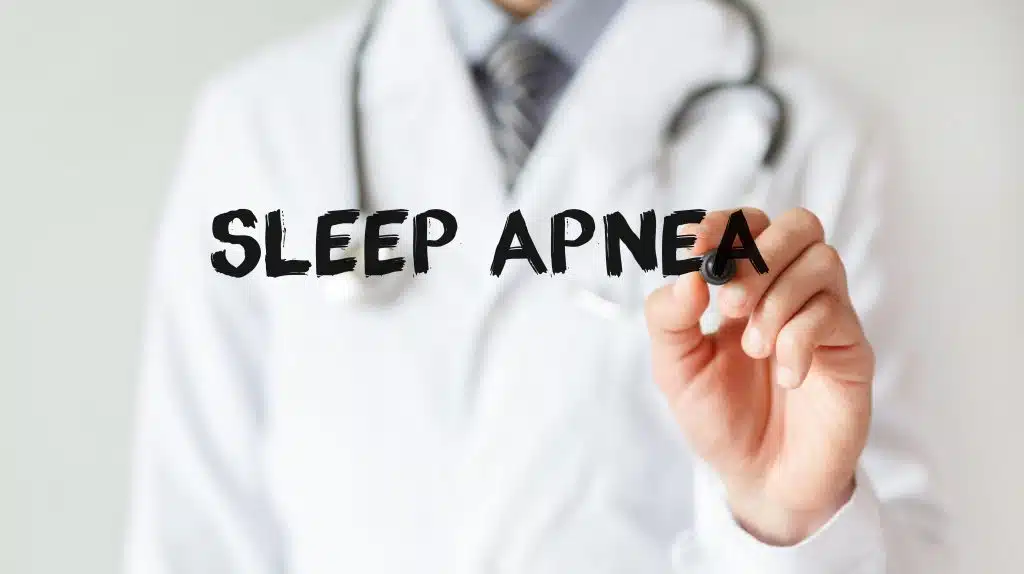Are you starting to notice subtle signs of sleep apnea? Don’t ignore them. Not all of the early signs of sleep apnea are obvious or identical. By picking up on them earlier, you can help improve your health and get a better night’s rest.
What are the Signs of Sleep Apnea?
Depending on the specific type of sleeping disorder you have, you might be experiencing symptoms like:
- Difficulty concentrating
- Daytime fatigue
- Snoring
- Frequent headaches or migraines
- Weight gain
- Depression
- TMJ pain or disorder
- High blood pressure
- Teeth clenching and grinding
- Bags under your eyes
Most people assume that snoring is one of the most common and subtle signs of sleep apnea. But it’s just one of many. And not all people who have sleep apnea actually snore, so ruling out snoring isn’t necessarily as important as you may think it is.
If you’re struggling with your heart health, energy levels, or just being able to focus at work, you might have early warning signs of sleep apnea and not even know it.
Why Early Screening is Essential
Untreated sleep apnea can significantly strain your cardiovascular health. People who are already at risk of heart disease may be placing themselves at an elevated risk when they have a sleeping disorder.
Getting your health under control is challenging, if not even impossible, whenever you lack the energy and metabolism to get through the day. Even if your roommate or family member doesn’t hear you snore, it doesn’t mean you’re in the clear of this serious medical condition.
What Treatment Options Are There?
One of the most common types of sleep apnea that we see in San Diego is Obstructive Sleep Apnea (OSA). OSA originates at the back of the throat, which is why some people will occasionally snore.
When someone has OSA, their oral tissues—like their tongue, tonsils, and soft palate—collapse in on one another to physically block off the airway. As your brain becomes oxygen-deprived and your blood oxygen levels drop, your jaw (TMJ) instinctively clenches tightly shut. This repeated process usually leads to flat, worn, or broken teeth in people who have sleeping disorders.
Although CPAP therapy is popular for people with sleep-disordered breathing, it’s not your only option. You can also address the lack of oxygen at its source: the back of your throat.
Oral appliances for sleep apnea are usually a type of mandibular advancement device. That is, they guide the mandible (lower jaw) slightly forward. In turn, this brings the tongue forward and reduces airway blockage in the back of the throat. Some patients see immediate results, while others require minor adjustments over the first few weeks.
To have an oral appliance made, we’ll simply need to have a prescription created based on your home sleep study findings. From there, we’ll take a set of impressions of your teeth and create the custom device. These medical appliances are FDA-approved for the treatment of obstructive sleep apnea.
Do I Have Sleep Apnea?
Anyone who is experiencing more than 2-3 symptoms of sleep apnea should plan to speak with our San Diego doctors or their physician at their earliest opportunity. At SD Sleep Center, we can easily screen for the warning signs of obstructive sleep apnea by performing a thorough oral exam. If a home sleep study is recommended, we can arrange for you to take a kit with you to record data from your own bedroom. There’s usually no need to stay overnight in an offsite sleep lab.
Sleep Apnea Treatment in San Diego
SD Sleep Center offers holistic sleep apnea treatment. San Diego patients can count on our team to help them get the care that they need. Our practice offers screenings for sleeping disorders, including home-based sleep studies for a firm clinical diagnosis.
Are you or a family member showing early signs of a possible sleeping disorder? Call our San Diego Sleep Center today to request an exam.


